‘Blocking Clinic’
Q&A: Birds OL Schools Pack, Enables High-Octane Run Game
Entering the final full month of the regular season, the 10-1 Philadelphia Eagles are looking to build on their dominant run game and clean up their defensive mistakes.
On the latest “Q&A” podcast on Inside The Birds, former Eagles Jason Avant and Quintin Mikell analyze the positives and negatives from the latest Eagles victory.
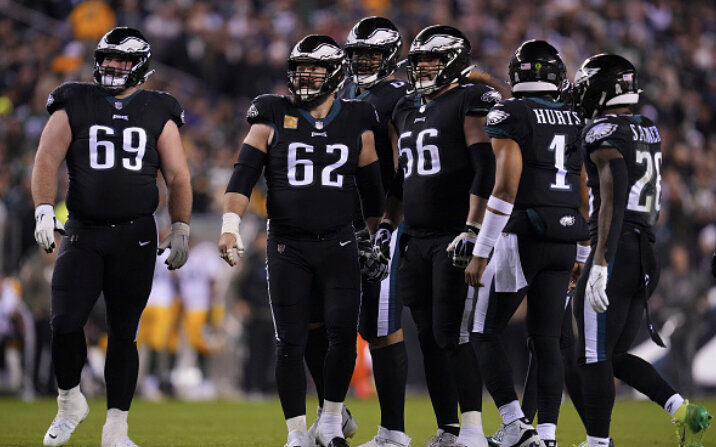
The Eagles run game was unstoppable Sunday night, rushing for 363 yards in the 40-33 win
Run Game
Quintin Mikell: “On almost every single play, what stood out to me was the athleticism of this offensive line. They’re coming off the ball like snipers in their angles and the different schemes that they can execute and their blocking. And then you have a running back and quarterback that are aggressive runners, breaking tackles, they are not running afraid. It was a complete package to me. It was like a blocking clinic right there from all of the schemes I saw.”
Jason Avant: “They executed double teams extremely well, got up to the second level. They pulled four different players. Lane Johnson pulled, Landon Dickerson pulled, Jason Kelce pulled, Isaac (Seumalo) pulled. You have all of these guys that are moving around and then getting to their target and the timing of the play…The only way to consistently stop the Eagles offensive line is to put a big, heavy Linval Joseph-type player over Jason Kelce where he can’t get out and you can’t pull him and he’s going to get pushed back because Kelce is a smaller center. If you’re playing a 40 front against the Eagles and you’re trying to make that your base against them, you’re just not going to win that battle because our guys are too technically sound to let your four beat their five.”
Miles Sanders
Avant: “When you get an offensive line to the second level, now the running back is in Barry Sanders mode already. They’re downhill, they’re able to take the safety or the guys that don’t want to tackle him and make yards. The thing that I like about Miles Sanders, which I didn’t see as much last year, is that he’s continuing to turn his feet when he’s starting to break more tackles than what he have seen in the past. It’s pretty clear with his touchdown on the goal-line where he was behind offensive linemen at the three yard-line and then he just emerges and chugs his feet. He didn’t get one yard into the end zone, he was like six yards into the end zone by the time his feet stopped and he hit the ground. Nobody was stopping him getting into the endzone in that moment.”
A.J. Brown
Avant: “I see that he’s more in his mind than anything. He’s put a few on the ground and we don’t notice them because he makes spectacular plays. I think that he’s in his mind a little bit and he has to get out of it because the team needs him. Another thing is what you’re doing at the end of the game is what you should do all of the time. When I’m coaching receivers at any level, I always tell them ‘high and tight.’ If there’s one person, use your off arm to defend yourself and shake tackles. If there’s ever two people around you, put two hands on the ball. Don’t go against two or three people with one hand on the ball, it just doesn’t make sense. That’s what you are seeing, a whole bunch of tacklers for the Packers, one guy comes in late and strips the ball out because there’s only one hand on it. You have to recognize that these dudes are trying to get the ball. This is something that pros should know, but you have to take pros back to the basics, because over a period of time, you kind of lose your fundamentals because people expect it from you rather than get on your butt about it. Brown has to be coached and reminded: don’t just give him the A.J. Brown treatment.”
Mikell: “What happens now is defenders are watching the tape. If a guy fumbles, the entire week the defensive backs coach says ‘go out there and punch it.’ Until you close the door on that, it’s going to keep happening.”
Run Defense/Reed Blankenship
Mikell: “The teams that are successful running on this team, they don’t go up the middle. They go off tackle and force the secondary to come up and make tackles. That first long run A.J. Dillon had, there were people turning [tackling] him down. The only way that you can shut this down is if that secondary starts coming up and smacking people. I saw Reed Blankenship do it a couple of times. He’s a guy that I would have in the box because he will come up and hit you.”
Avant: “Reed wants to tackle. He made some mistakes in pass coverage. He got a pick, but made some mistakes. But he wanted the smoke. He took it like ‘I’m in the game, I’m going to bring a level of physicality.’ There was one dude in the flat, Blankenship ran from about 15 yards to get there. That’s football. I don’t know how you can watch that game and not be happy about a guy like Reed Blankenship. You want Gardner-Johnson to get healthy and play, but if you put Reed in there, he wants to tackle.”
Special Teams
Mikell: “For me, the biggest problem is awareness. On the kickoff, if you count [players] from the right towards the kicker, it’s ‘one, two, three, four, five’ and then the same the other way. The ‘fours’ and the ‘fives’ on each sides are the most important parts of the kickoff team. They’re supposed to fly down the field as fast as they can, but also have some awareness and understand the blocking scheme and what’s happening in front of them. The things that I’m seeing is on those long runs is the ‘fours’, ‘fives’ and sometimes the ‘threes’ just flying down the field as fast as they can without any awareness of the blocking scheme. They’re taking bad angles, running around blocks, and getting walled off.”
Avant: “We have a bunch of young dudes on special teams and it looks like they haven’t played special teams in a long time. They don’t understand how much space you need in order to run around people. There is a time to run around a block. If it’s within the window where a guy’s blocking you early and too far away from the ball, you can run around him because you can get in a lane 10 yards past him. But if that guy is in close proximity to the ball, you have to go through blockers at that point. You can’t run around anymore because there’s not enough space and time to being able to read their blocking and make a play. You have to run through people. Our guys are running around blocks when it’s confrontation time. That’s the problem to me.”
– Benjamin Paul is a staff writer for InsideTheBirds.com

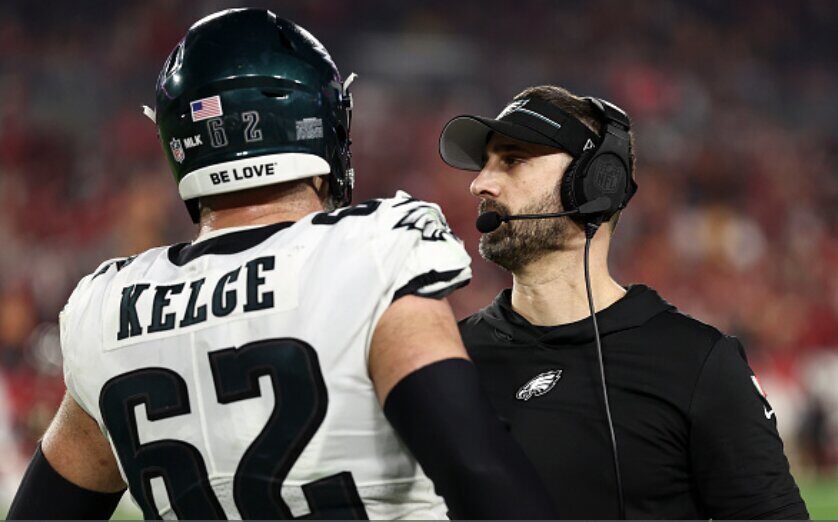
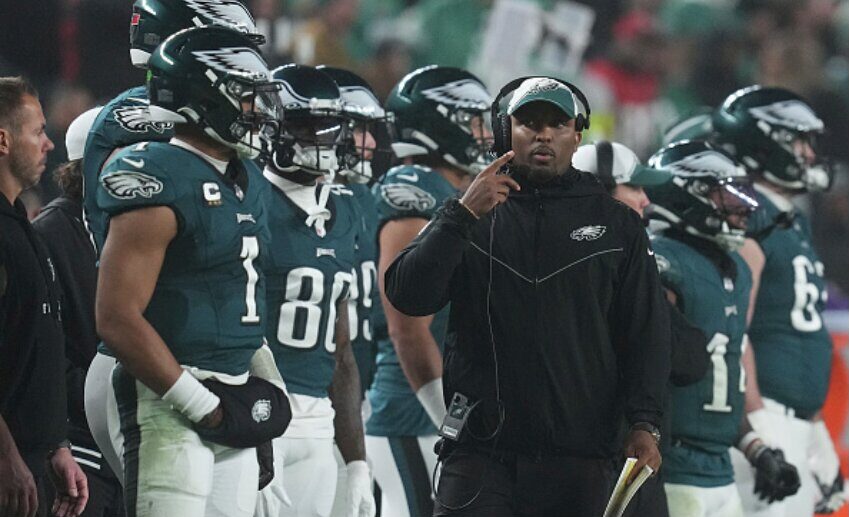
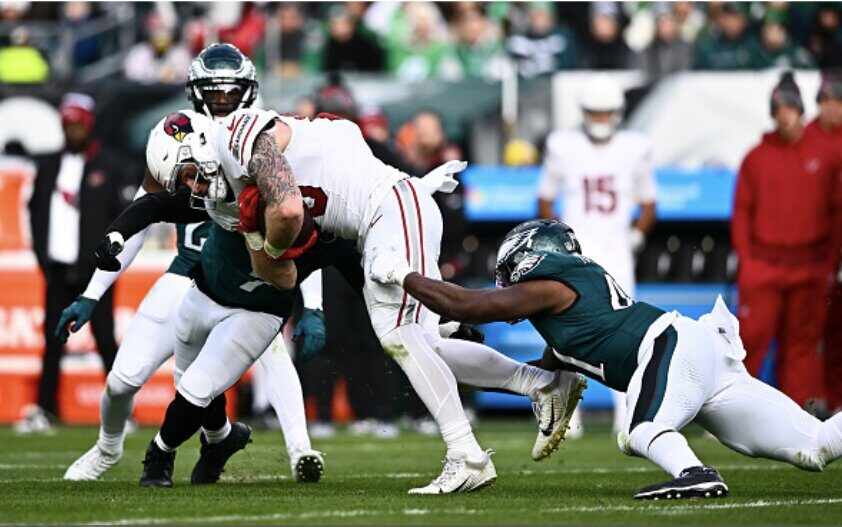
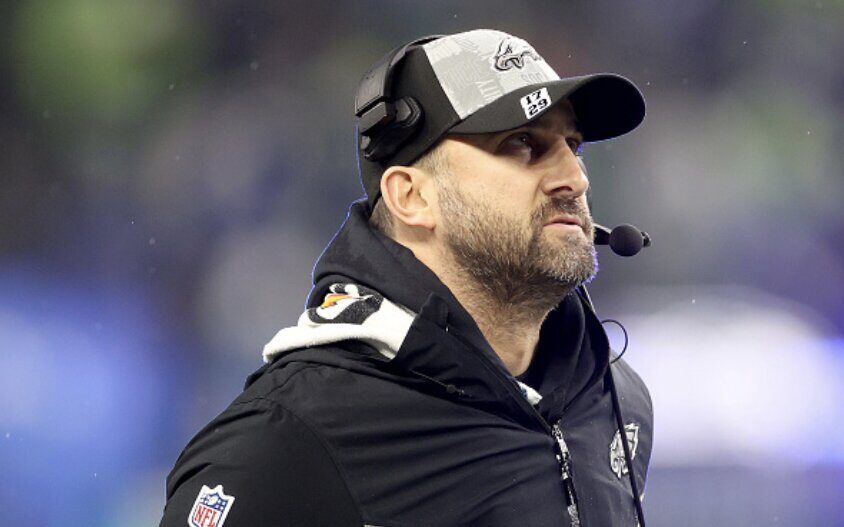
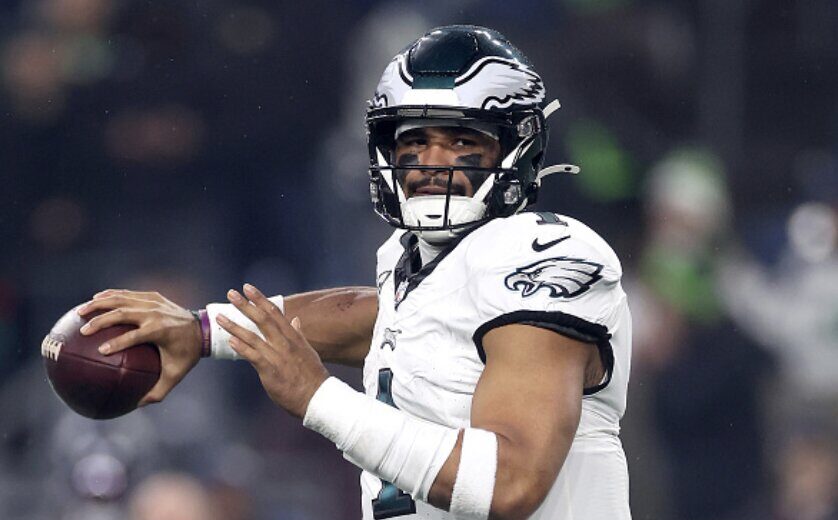
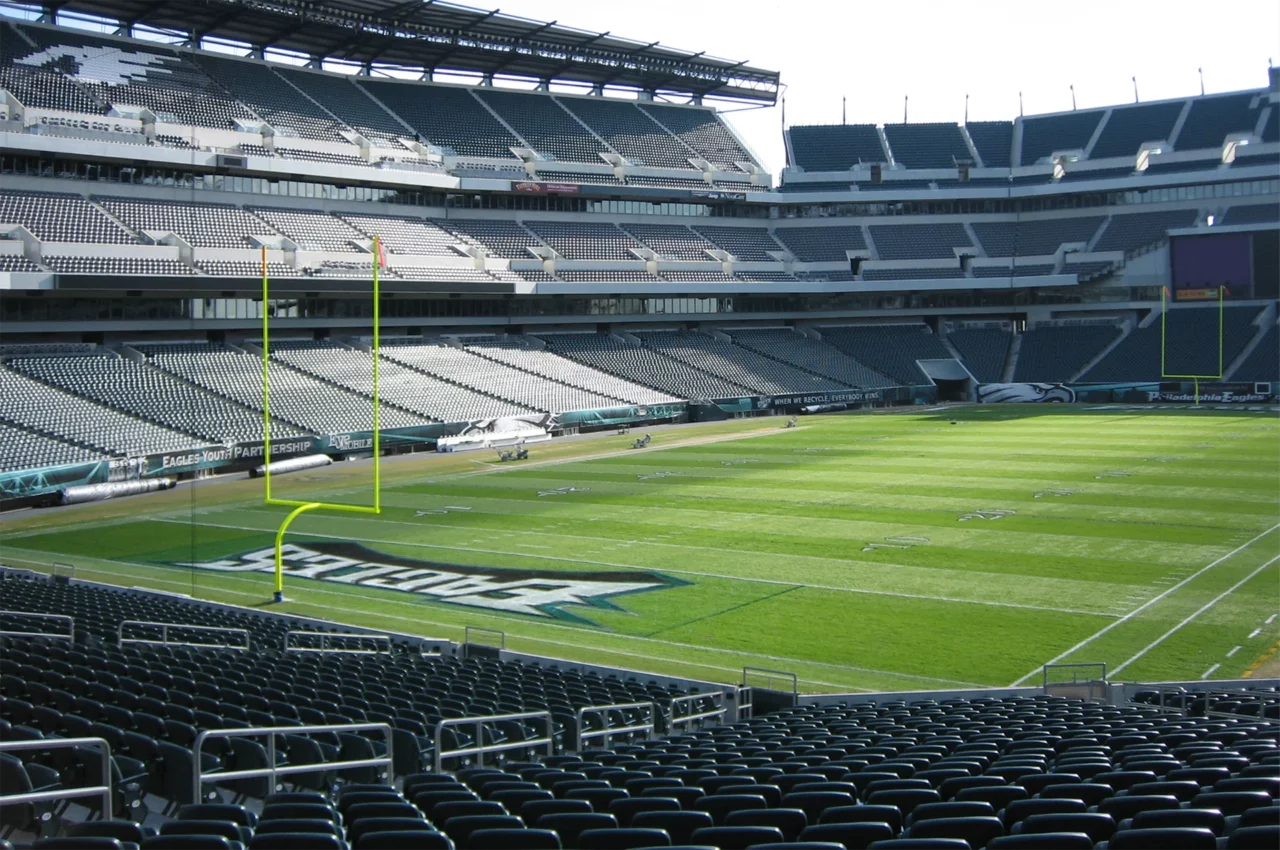
Comments are closed here.